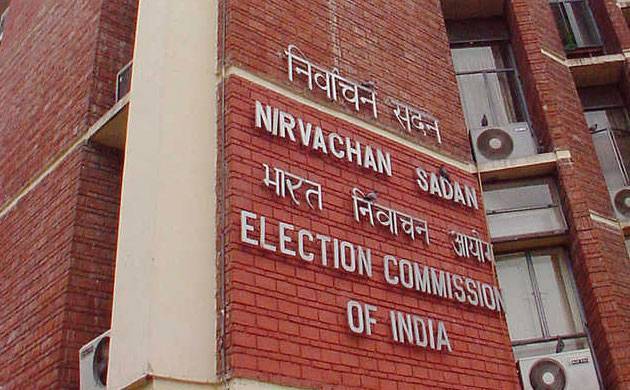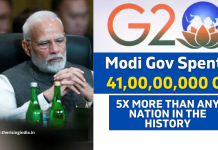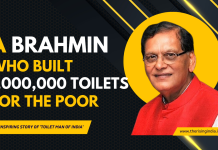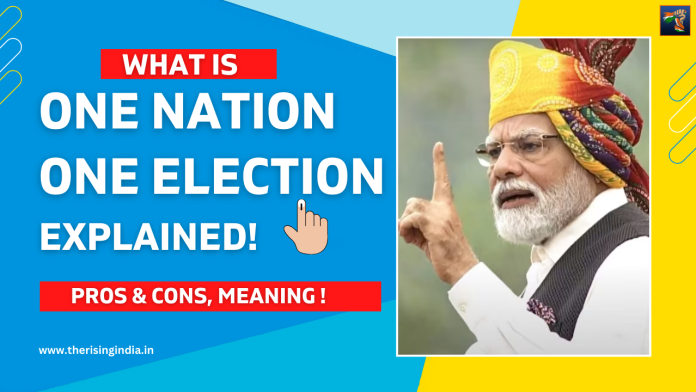What is One Nation One Election? Is it possible in India? Is it good or bad? Similarly, tons of questions are there now and we will try to bring some answers. In the vibrant tapestry of Indian democracy, the idea of ‘One Nation, One Election‘ has been a subject of both excitement and debate.
This proposal aims to synchronize the electoral calendars of the Lok Sabha, State Assemblies, and local bodies to hold elections simultaneously. While it may sound like a silver bullet for some, others view it with caution. In this article, we will explore the major benefits and drawbacks of this concept in the context of a diverse democratic nation like India.
What is One Nation One Election?
One Nation One Election (ONOE) is a proposal to hold simultaneous elections for the Lok Sabha (the lower house of Parliament) and all state assemblies in India. The idea is to save money and time, improve voter turnout, and reduce corruption.

The ONOE idea has been proposed by the ruling Bharatiya Janata Party (BJP) and has been supported by some other political parties. However, it has also been opposed by some parties, who argue that it would be too expensive and disruptive.
The ONOE idea is still under consideration by the Indian government. The Election Commission of India has raised concerns about the feasibility of the proposal, and the government has not yet decided whether to implement it.
Here are some of the key points of the ONOE idea:
- All elections would be held on the same day or over a few days.
- The term of the Lok Sabha and all state assemblies would be synchronized.
- The Election Commission of India would be responsible for conducting all elections.
One Nation One Election Bill
The Indian government has set up a committee to explore the possibility of holding simultaneous elections for the Lok Sabha (the lower house of Parliament) and all state assemblies. This is known as the “One Nation One Election” (ONOE) idea.
The ONOE idea has been proposed by the ruling Bharatiya Janata Party (BJP) and has been supported by some other political parties. However, it has also been opposed by some parties, who argue that it would be too expensive and disruptive.
The committee is expected to submit its report by September 15, 2023. The government has not yet announced whether it will implement the ONOE idea, but it is a proposal that is being taken seriously.

One Nation One Election – Pros and Cons
Pros of One Nation One Election
- Cost Reduction: Conducting elections is a costly affair. With multiple elections taking place every year at different levels, the expenditure on logistics, security, and campaigning skyrockets. Unifying election dates could significantly reduce the financial burden on the government.
- Increased Voter Turnout: Frequent elections can lead to voter fatigue. Combining all elections into one event may motivate more citizens to participate in the democratic process. Higher voter turnout ensures that the elected representatives truly reflect the will of the people.
- Stable Governance: Multiple elections disrupt the governance process. Politicians often focus on electioneering instead of policy implementation. One Nation, One Election could provide elected officials with a stable tenure, allowing them to concentrate on meaningful governance.
- Reduced Polarization: Frequent elections can intensify political polarization. By reducing the frequency of elections, there might be less polarization, as politicians may not resort to divisive issues as often to gain votes.
- Ease of Administration: Consolidating elections would ease the logistical challenges that come with frequent polls. It would simplify the responsibilities of election commissions and security forces, potentially reducing the chances of electoral malpractice.
Cons of One Nation One Election
- Erosion of Regional Autonomy: India is a land of diverse cultures, languages, and regional issues. Consolidating elections may result in national issues overshadowing local concerns, potentially undermining the principles of federalism.
- Logistical Nightmare: Coordinating elections across the vast expanse of India is no small feat. Infrastructure, security, and personnel must be meticulously managed to prevent disruptions, and failures in coordination could lead to chaos.
- Dominance of National Parties: Smaller regional parties may find it challenging to compete with national parties in a simultaneous election scenario. This could lead to the consolidation of power in the hands of a few major political players.
- Reduced Accountability: Longer electoral terms may reduce the accountability of elected officials. With fewer opportunities for the electorate to express their displeasure through the ballot box, politicians might become complacent.
- Constitutional Challenges: Implementing One Nation, One Election would require significant constitutional amendments. The process of changing the electoral system could be lengthy and contentious.

Is One Nation One Election Possible In India ?
The idea of One Nation One Election (ONOE) is a lofty one, but is it possible in India? The constitutionality of One Nation One Election (ONOE) in India is a complex issue with no easy answer. There are a number of factors to consider, including the interpretation of the Constitution, the practicalities of implementation, and the potential impact on democracy.
The Constitution of India does not explicitly prohibit ONOE. However, there are a number of provisions that could be interpreted as obstacles to its implementation. For example, Article 172 of the Constitution states that the term of the Lok Sabha cannot be extended beyond five years. This could be interpreted to mean that the Lok Sabha cannot be dissolved early to hold simultaneous elections.
Additionally, Article 324 of the Constitution gives the Election Commission of India the power to “supervise, direct and control” all elections to Parliament and the state legislatures. This could be interpreted to mean that the Election Commission would have to approve any proposal for ONOE.
What is One Nation One Election? |Is One Nation One Election Possible In India? One Nation One Election - Pros & Cons Share on X
The practicalities of implementing ONOE would also be challenging. India is a vast and diverse country with a large population. Holding simultaneous elections for all levels of government would require a massive logistical effort. It would also be difficult to ensure that all voters had the opportunity to cast their ballots.
Finally, there is the potential impact of ONOE on democracy. Some argue that ONOE would weaken democracy by reducing the frequency of elections and giving voters less opportunity to hold their elected representatives accountable. Others argue that ONOE would strengthen democracy by making it more efficient and effective.
Ultimately, the constitutionality of ONOE is a matter for the courts to decide. However, the issue is likely to be debated for many years to come.
In general opinion, the constitutional freedom to hold simultaneous elections for the Lok Sabha and all state assemblies is not clear. There are a number of provisions in the Constitution that could be interpreted as obstacles to its implementation. However, the issue is likely to be debated for many years to come, and it is possible that the Supreme Court of India will eventually rule on its constitutionality.

Is One Nation One Election Good Or Bad?
The idea of One Nation One Election (ONOE) is a lofty one, but is it possible in India? There are many factors to consider, both pros and cons.
On the one hand, ONOE could save the country a lot of money and time. Currently, elections are held every five years for the Lok Sabha (the lower house of Parliament) and every three to five years for state assemblies. If all elections were held simultaneously, it would save money on election-related expenses. It would also save time, as there would be no need to have separate election campaigns for each election.
What is One Nation One Election? | Is One Nation One Election Possible In India ? One Nation One Election - Pros & Cons Share on X
On the other hand, ONOE could be disruptive. Simultaneous elections would disrupt the normal functioning of the government and the economy. This is because elections require a lot of manpower and resources, which would be diverted away from other essential activities. Additionally, ONOE would be difficult to implement because of the different election laws and procedures in each state. It would also be difficult to coordinate the elections of so many different bodies.
Only time will tell whether India is ready for ONOE. But it is an idea worth considering, and one that could have a positive impact on the country.
Conclusion
The concept of One Nation, One Election is undoubtedly appealing, promising financial savings, increased voter participation, and more stable governance. However, it is not without its challenges, particularly in a country as diverse as India. Striking the right balance between the benefits and drawbacks will require careful consideration and extensive deliberation among political stakeholders, experts, and the public.
Ultimately, whether or not ONOE is possible in India depends on a number of factors, including the political will to make it happen, the availability of resources, and the ability to overcome the challenges involved. It is a complex issue with no easy answers.
Ultimately, the success of One Nation, One Election will hinge on how well it aligns with the core principles of democracy: representation, accountability, and the protection of minority interests. In this journey towards democratic efficiency, India must tread cautiously, ensuring that the spirit of federalism and diversity remains intact while reaping the rewards of synchronized elections.
What is One Nation One Election? |Is One Nation One Election Possible In India ? One Nation One Election - Pros & Cons Share on X










[…] Furthermore, the exam pattern section of the notification sheds light on how the selection process will be conducted. It provides details about the different stages of examination, including preliminary and main exams. Candidates can use this information to plan their preparation strategy accordingly. […]